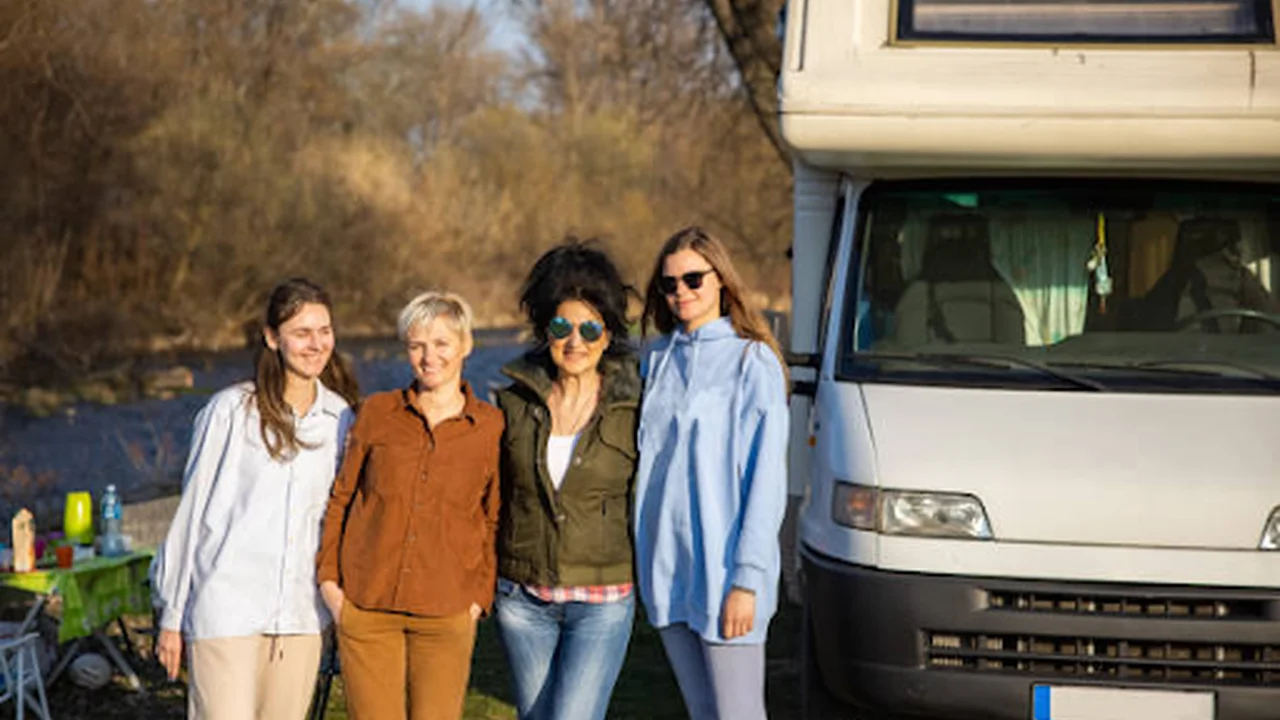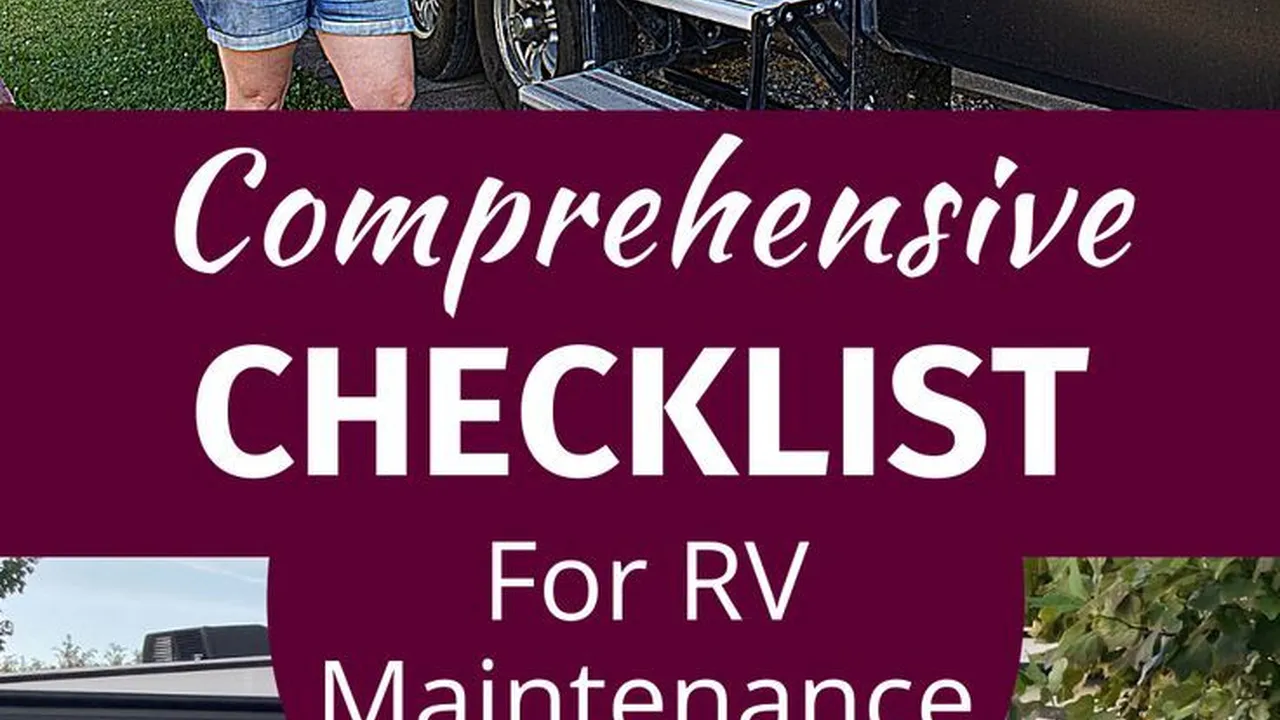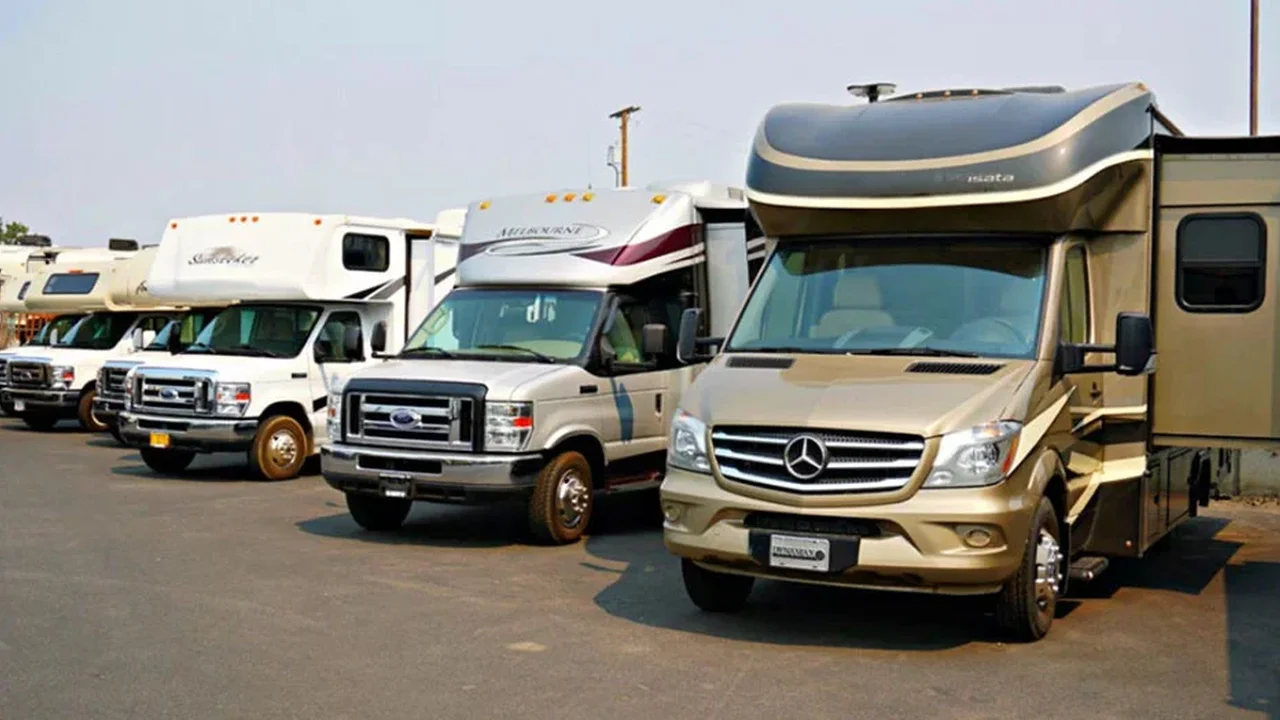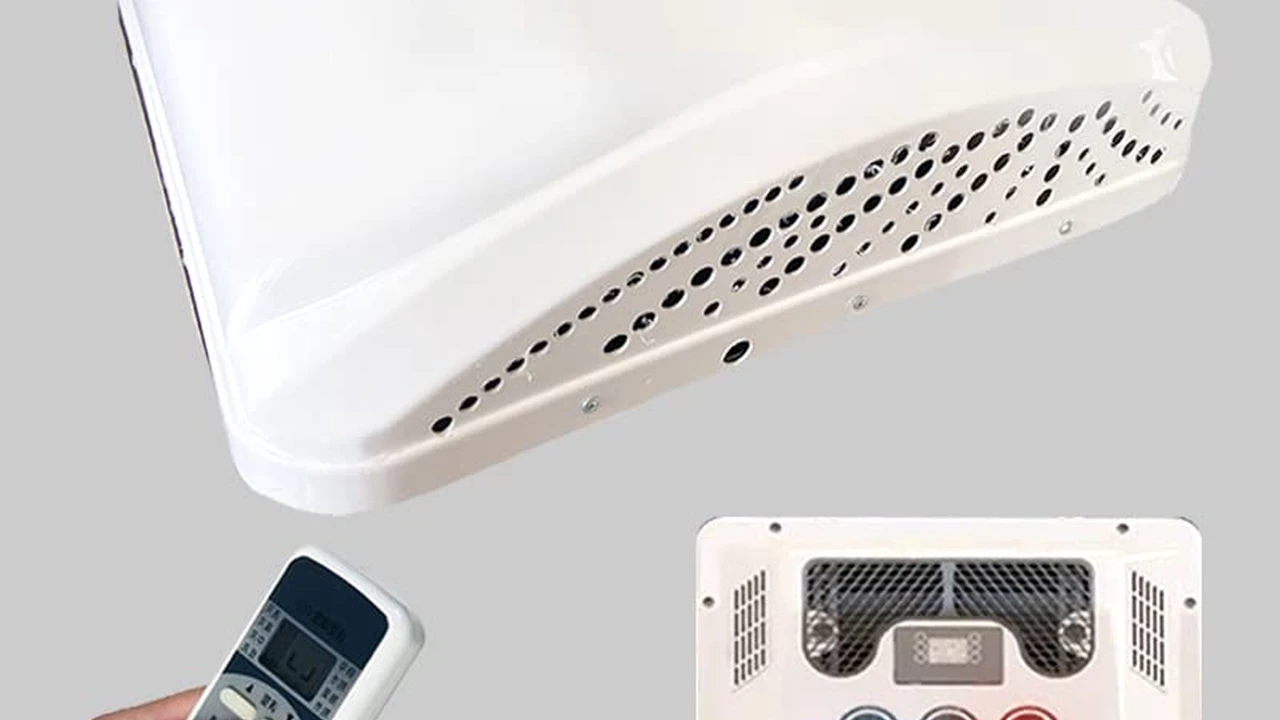RV Community: Connecting with Fellow Travelers

RV Living A Comprehensive Guide to Freedom on Wheels
RV living, a lifestyle choice that embodies freedom, adventure, and simplicity, has surged in popularity. More and more people are trading in traditional brick-and-mortar homes for the open road, embracing the nomadic spirit and the allure of ever-changing landscapes. But what exactly is RV living, and is it right for you? Let's delve into the details.
What is RV Living
RV living, at its core, is about living in a recreational vehicle (RV) as your primary residence. This could be a motorhome, a travel trailer, a fifth-wheel trailer, or even a converted van. The key is that the RV becomes your home, providing shelter, comfort, and the ability to travel at will. RV living offers a unique blend of minimalism, adventure, and community, attracting people from all walks of life.
Types of RVs for Full-Time Living
Choosing the right RV is crucial for successful full-time living. Here's a breakdown of the most common types:
- Motorhomes: These are self-propelled RVs, offering convenience and ease of travel. Class A motorhomes are the largest and most luxurious, while Class B (van conversions) are smaller and more fuel-efficient. Class C motorhomes fall in between, offering a balance of space and maneuverability.
- Travel Trailers: These are towed behind a truck or SUV. They come in various sizes and layouts, from compact teardrop trailers to large, family-friendly models. Travel trailers are generally more affordable than motorhomes.
- Fifth-Wheel Trailers: These are similar to travel trailers but attach to a special hitch in the bed of a pickup truck. They offer more stability and tend to be larger and more luxurious than travel trailers.
- Van Conversions: These are vans that have been converted into living spaces. They are ideal for solo travelers or couples who value stealth and maneuverability.
The Pros and Cons of RV Living
Like any lifestyle choice, RV living has its advantages and disadvantages.
Pros
- Freedom and Flexibility: The ability to travel wherever you want, whenever you want, is a major draw for many RVers.
- Cost Savings: RV living can be more affordable than traditional homeownership, especially if you're willing to boondock (camp without hookups).
- Minimalism: RV living encourages you to declutter and live with less, which can be liberating.
- Community: The RV community is incredibly welcoming and supportive. You'll find fellow travelers eager to share tips and experiences.
- Adventure: Every day can be an adventure when you're on the road. You'll discover new places and experiences you never thought possible.
Cons
- Space Limitations: RVs are small spaces, so you'll need to be comfortable living with less stuff.
- Maintenance: RVs require regular maintenance and repairs, which can be costly.
- Weather Dependency: Your travel plans may be affected by weather conditions.
- Hookups: Finding reliable hookups (water, electricity, sewer) can be challenging, especially in remote areas.
- Regulations: RV regulations vary from state to state, so you'll need to stay informed.
Essential RV Organization Tips and Tricks for Small Spaces
Living in a small space requires smart organization. Here are some tips and tricks to maximize your RV's storage potential.
Maximizing Storage Space in Your RV
Every inch counts in an RV. Here's how to make the most of your limited space:
- Vertical Storage: Utilize wall space with shelves, hanging organizers, and hooks.
- Multi-Purpose Furniture: Invest in furniture that serves multiple functions, such as a sofa bed or a storage ottoman.
- Collapsible Items: Use collapsible bowls, buckets, and laundry baskets to save space when they're not in use.
- Under-Bed Storage: Maximize the space under your bed with storage containers.
- Over-the-Door Organizers: These are great for storing shoes, toiletries, and other small items.
- Clear Bins: Use clear bins to easily see what's inside without having to rummage through everything.
- Label Everything: Label your bins and containers to stay organized.
RV Kitchen Organization Hacks
The RV kitchen is often the most challenging space to organize. Here are some hacks to keep it tidy:
- Stackable Cookware: Invest in stackable pots, pans, and dishes to save space.
- Magnetic Knife Strips: Mount a magnetic knife strip to the wall to keep knives safely stored and out of the way.
- Spice Racks: Use spice racks to organize your spices and keep them within easy reach.
- Hanging Fruit Baskets: Hang fruit baskets from the ceiling to free up counter space.
- Dish Drying Racks: Use a collapsible dish drying rack to save space when it's not in use.
- Cutlery Organizers: Use cutlery organizers to keep your utensils neatly organized.
RV Closet Organization Ideas
RV closets are typically small and cramped. Here's how to make the most of them:
- Hanging Organizers: Use hanging organizers to store clothes, shoes, and accessories.
- Vacuum Storage Bags: Use vacuum storage bags to compress bulky items like blankets and sweaters.
- Rolling Carts: Use rolling carts to store clothes and accessories under the bed.
- Shelf Dividers: Use shelf dividers to keep stacks of clothes from falling over.
- Matching Hangers: Use matching hangers to create a more uniform and organized look.
RV Water Systems Understanding and Maintaining Fresh Water Tanks
Understanding and maintaining your RV's water system is crucial for a comfortable and healthy RV living experience.
RV Fresh Water Tank Basics
Your fresh water tank is where you store potable water for drinking, cooking, and showering. It's essential to keep it clean and properly maintained.
How RV Fresh Water Tanks Work
RV fresh water tanks are typically made of plastic and are located underneath the RV. They are filled with water from a city water connection or a well. A water pump then delivers the water to your faucets, shower, and toilet.
Choosing the Right Size Fresh Water Tank
The size of your fresh water tank depends on your water usage and how often you plan to boondock. A general rule of thumb is to have at least 20 gallons of water per person per day. However, you can conserve water by taking shorter showers, using water-saving fixtures, and collecting rainwater.
Cleaning and Sanitizing Your RV Fresh Water Tank
Regular cleaning and sanitizing are essential to prevent the growth of bacteria and algae in your fresh water tank.
Steps for Cleaning Your RV Fresh Water Tank
- Drain the tank completely.
- Add a mixture of bleach and water (1/4 cup of bleach per 15 gallons of water).
- Fill the tank completely.
- Let the solution sit for at least 4 hours.
- Drain the tank completely.
- Flush the tank with fresh water until the bleach smell is gone.
Frequency of Cleaning and Sanitizing
You should clean and sanitize your fresh water tank at least twice a year, or more often if you notice any foul odors or tastes.
Troubleshooting Common RV Water System Problems
Here are some common RV water system problems and how to fix them:
- Low Water Pressure: Check your water pump filter and make sure it's clean. Also, check for leaks in your water lines.
- No Water: Check your water pump to make sure it's working. Also, check your fresh water tank level.
- Leaking Faucets: Replace the faucet washers or the entire faucet.
- Clogged Drains: Use a drain snake to clear the clog.
RV Electrical Systems Powering Your Home on Wheels
Understanding your RV's electrical system is crucial for powering your appliances and electronics while on the road.
RV Electrical System Basics
RV electrical systems are typically dual-voltage, using both 12-volt DC power and 120-volt AC power.
12-Volt DC System
The 12-volt DC system is powered by your RV's battery. It's used to power lights, fans, water pump, and other low-voltage appliances.
120-Volt AC System
The 120-volt AC system is powered by shore power (electricity from an external source) or a generator. It's used to power appliances like air conditioners, refrigerators, and microwaves.
RV Batteries Choosing the Right Type and Maintaining Them
Your RV's batteries are the heart of your 12-volt DC system. Choosing the right type and maintaining them properly is essential for reliable power.
Types of RV Batteries
- Lead-Acid Batteries: These are the most common and affordable type of RV battery. They require regular maintenance and have a shorter lifespan than other types.
- AGM Batteries: These are sealed lead-acid batteries that require less maintenance and have a longer lifespan than traditional lead-acid batteries.
- Lithium Batteries: These are the most expensive type of RV battery, but they offer the longest lifespan, the highest energy density, and require no maintenance.
Maintaining Your RV Batteries
To prolong the life of your RV batteries, follow these tips:
- Keep them clean and dry.
- Check the water level regularly (for lead-acid batteries).
- Charge them regularly.
- Avoid deep discharging them.
RV Generators Choosing and Using a Portable Generator
A generator can provide power when shore power is not available.
Choosing the Right Size Generator
The size of your generator depends on your power needs. Calculate the total wattage of all the appliances you want to run simultaneously, and then choose a generator that can handle that load.
Using a Portable Generator Safely
When using a portable generator, follow these safety precautions:
- Operate the generator in a well-ventilated area.
- Never operate the generator indoors.
- Use a carbon monoxide detector.
- Store gasoline safely.
RV Safety Tips Ensuring a Safe and Enjoyable RV Adventure
Safety should always be your top priority when RVing.
RV Fire Safety
Fire is a serious hazard in RVs. Here's how to prevent and respond to a fire:
- Install smoke detectors and carbon monoxide detectors.
- Test your smoke detectors and carbon monoxide detectors regularly.
- Keep a fire extinguisher on hand and know how to use it.
- Never leave cooking unattended.
- Be careful when using propane appliances.
RV Security Protecting Your RV from Theft
RVs are vulnerable to theft. Here's how to protect your RV:
- Lock your doors and windows.
- Install an alarm system.
- Use a wheel lock or hitch lock.
- Park in well-lit areas.
- Don't leave valuables in plain sight.
RV Tire Safety Checking and Maintaining Your RV Tires
Tire failure is a common cause of RV accidents. Here's how to prevent tire failure:
- Check your tire pressure regularly.
- Inspect your tires for wear and tear.
- Replace your tires when they reach the end of their lifespan.
- Don't overload your RV.
RV Budgeting and Cost Management Living Affordably on the Road
RV living can be affordable, but it's important to budget carefully.
Creating an RV Budget
Here are some expenses to consider when creating an RV budget:
- RV payments or rent
- Fuel
- Campground fees
- Maintenance and repairs
- Insurance
- Food
- Entertainment
- Utilities
Saving Money on RVing
Here are some tips for saving money on RVing:
- Boondock (camp without hookups).
- Cook your own meals.
- Take advantage of free activities.
- Join RV clubs for discounts.
- Shop around for insurance.
RV Community Connecting with Fellow Travelers
The RV community is one of the best things about RV living.
Finding RV Communities
Here are some ways to find RV communities:
- Online forums and social media groups
- RV rallies and events
- Campgrounds and RV parks
- RV clubs
Benefits of Joining RV Communities
Here are some benefits of joining RV communities:
- Friendship and support
- Sharing tips and experiences
- Learning from others
- Discounts and deals
RV Destinations Exploring the Best RV-Friendly Locations
The possibilities are endless when it comes to RV destinations.
Choosing Your RV Destination
Consider your interests and budget when choosing your RV destination.
Popular RV Destinations
- National Parks
- State Parks
- Beaches
- Mountains
- Deserts
Recommended Products for RV Living
Here are some recommended products for RV living:
RV Water Filter Recommendations
* **Camco TastePURE Water Filter:** This filter removes chlorine, sediment, and other impurities from your water, providing clean and great-tasting water. It costs around $20. * **Clear2O DirtGuard RV Water Filter:** This filter is designed to remove sediment and debris from your water, protecting your RV's plumbing system. It costs around $30.RV Solar Panel Recommendations
* **Renogy 100 Watt 12 Volt Solar Panel:** This solar panel is a great option for supplementing your RV's power supply. It costs around $100. * **Go Power! Portable Solar Kit:** This portable solar kit is easy to set up and transport, making it a great option for boondocking. It costs around $300.RV Organization Product Recommendations
* **Hanging Closet Organizer:** This organizer provides extra storage space in your RV closet. It costs around $20. * **Stackable Storage Bins:** These bins are great for organizing your RV's pantry or cabinets. They cost around $15 for a set of three.Product Comparison: RV Portable Generators
* **Honda EU2200i:** Known for its quiet operation and reliability, perfect for sensitive electronics. Price: $1,100 * **Champion 3400-Watt Dual Fuel:** Runs on both gasoline and propane, offering flexibility. Price: $800 * **Westinghouse iGen2500:** Lightweight and fuel-efficient, suitable for smaller RVs. Price: $550Product Use Cases
* **Portable Generators:** Ideal for powering air conditioners, microwaves, and other high-wattage appliances when shore power isn't available. * **Water Filters:** Essential for ensuring clean and safe drinking water from campground water sources. * **Solar Panels:** Perfect for extending boondocking trips by recharging batteries with solar energy. * **RV Levels:** Allow for easier leveling of any RV quickly. * **RV Wheel Chocks:** Prevents the RV from rolling while parked and unhitched.RV Lifestyle: Is it right for you?
RV living offers a unique blend of freedom, adventure, and simplicity. It's not for everyone, but for those who embrace the nomadic spirit, it can be a rewarding and fulfilling lifestyle. Consider your priorities, lifestyle, and budget before making the leap. If you're prepared for the challenges and excited about the possibilities, RV living could be the perfect adventure for you.
:max_bytes(150000):strip_icc()/277019-baked-pork-chops-with-cream-of-mushroom-soup-DDMFS-beauty-4x3-BG-7505-5762b731cf30447d9cbbbbbf387beafa.jpg)





